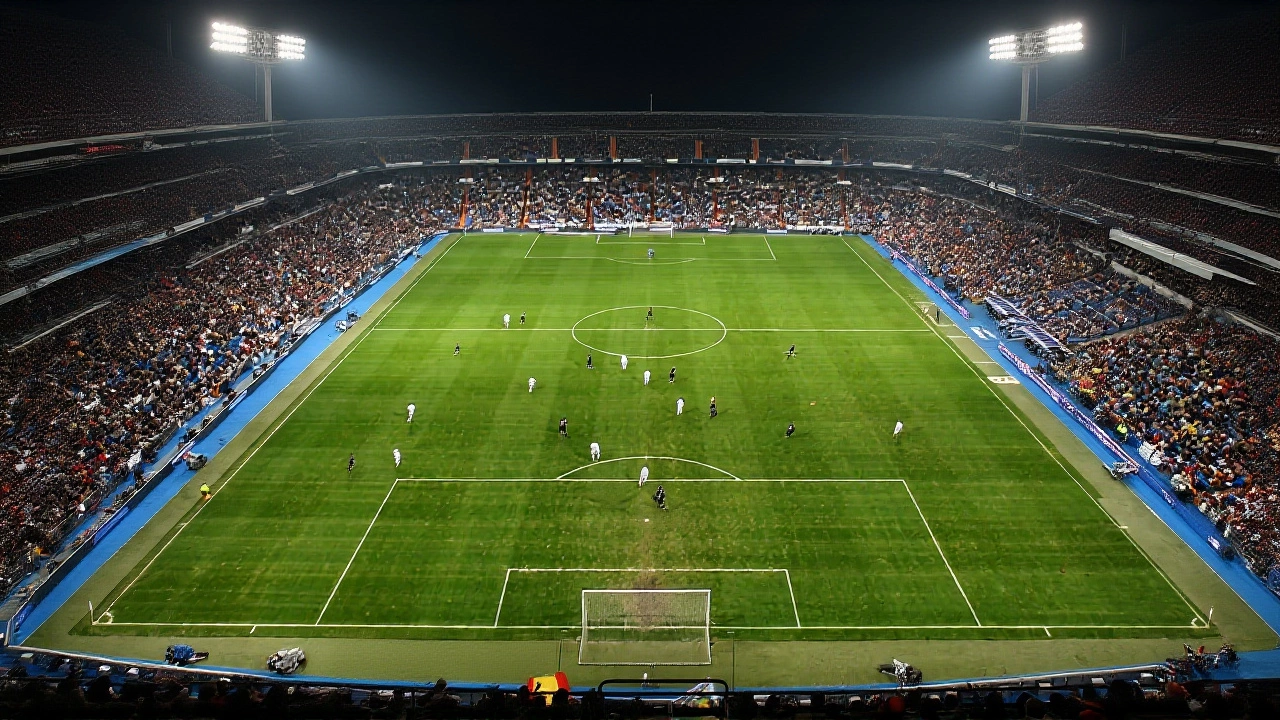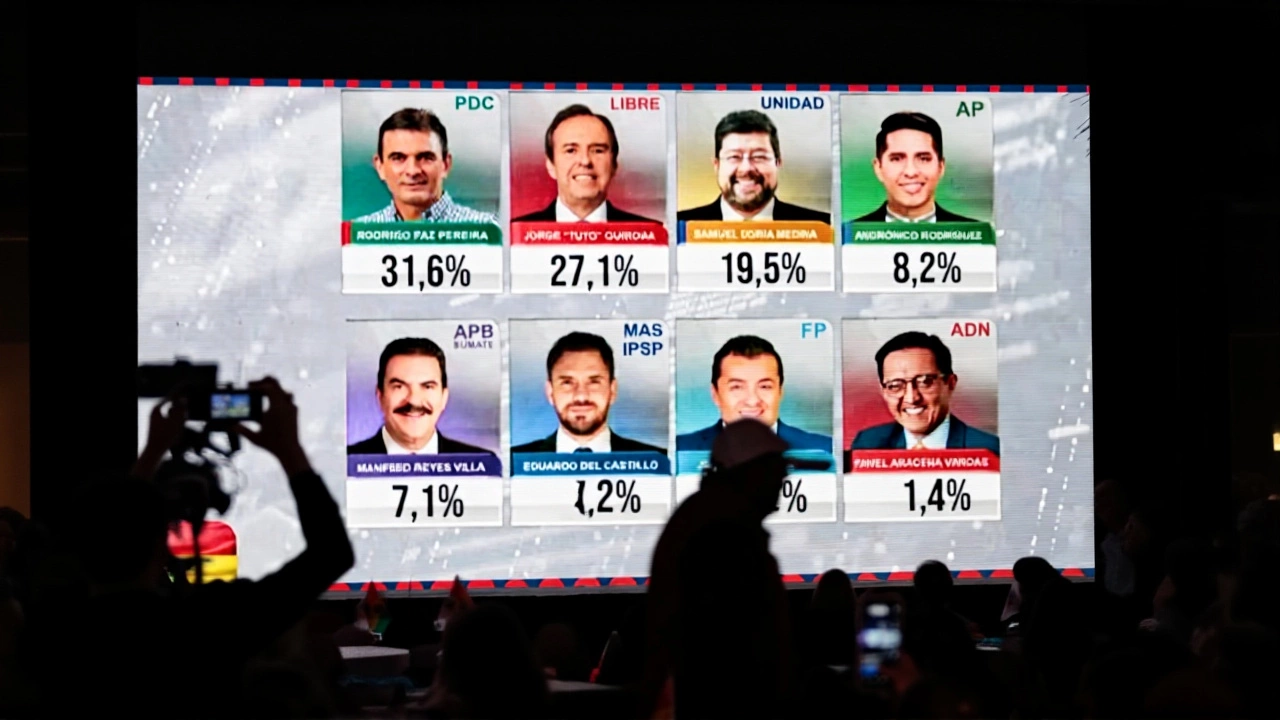From Bolivia to Brazil, Latin America is bracing for a seismic political realignment — seven presidential elections between February 2025 and October 2026 could dismantle the leftist wave that dominated the region for two decades. The results won’t just reshape national policies; they’ll redefine U.S. relations, investor confidence, and regional security cooperation. According to GIS Reports, the right is poised to win all seven contests, marking the most significant conservative surge since the early 2000s.
The Electoral Calendar That Could Reshape a Continent
The sequence begins in Ecuador on February 9, 2025 Ecuador, where incumbent Daniel Noboa faces Luisa González, the candidate tied to jailed former president Rafael Correa. The race was so tight it forced a April 13, 2025 runoff Ecuador. As Christopher Sabatini of Chatham House put it, "Ecuador’s vote is the first bellwether of the Trump 2.0 era in Latin America." Voters, especially younger ones, recoiled at González’s association with Correa’s corruption convictions — a sign that leftist nostalgia is losing its grip.Bolivia follows on August 17, 2025 Bolivia. Incumbent Luis Arce, of the ruling Movement for Socialism, won 50.38% in the first round — just shy of the 50% needed to avoid a runoff. His opponent, former president Jorge Quiroga, took 26.62%. But the real wildcard is Evo Morales, who’s running for the first time since his 2019 ouster, now as head of the Frente para la Victoria. Analysts say Morales’s return could split the left vote, making Arce vulnerable — and opening the door for a conservative breakthrough in October’s runoff.
Chile, Costa Rica, and Peru: The Left Concedes
In Chile, voters head to the polls on November 16, 2025 , with a runoff on December 14. Polls show the center-right coalition surging, while the leftist coalition remains fractured. The same pattern holds in Costa Rica, where Rodrigo Chaves can’t run again. His party’s likely successor, Laura Fernández, is struggling to match his popularity. The opposition, led by a former mayor and a populist economist, is gaining traction. The February 1, 2026 Costa Rica election could mark the end of nearly 15 years of center-left governance.Peru’s April 12, 2026 vote is perhaps the most volatile. The country has seen five presidents in four years. The current administration, led by Dina Boluarte, is unpopular. But the left — once dominant under Pedro Castillo — is now discredited by corruption scandals and failed governance. Polls suggest a right-leaning technocrat or former military officer could win. As one Lima-based economist told me, "Peru’s voters aren’t choosing ideology anymore. They’re choosing survival."
Brazil: The Final Act — and a Disqualified Challenger
The climax comes in Brazil on October 4, 2026 . Luiz Inácio Lula da Silva, 79, is running for a historic fourth term. But his main rival — Jair Bolsonaro — is out. Disqualified by a federal court over his alleged role in an attempted coup, Bolsonaro’s absence changes everything. Without him, the right’s energy is fragmented. Yet, polls show a right-wing coalition coalescing around a new figure: possibly São Paulo’s governor or a former defense minister. Lula’s campaign is betting on nostalgia and social programs. But with inflation still above 4% and crime rising in Rio and São Paulo, voters may be less forgiving.
Argentina’s Midterms: Milei’s Make-or-Break Moment
While not a presidential race, Argentina’s October 26, 2025 Argentina legislative elections will be a referendum on President Javier Milei. Oxford Economics predicts his party will gain seats, but not enough to control Congress. Still, if he wins big, he’ll push through deeper austerity. If he loses, his radical reforms stall — and the opposition could force early elections. "Milei isn’t just testing his policies," said a Buenos Aires political strategist. "He’s testing whether democracy can survive shock therapy."Why This Matters Beyond Borders
These elections aren’t isolated. They’ll determine whether Latin America leans toward U.S.-backed market reforms or rekindles regional alliances with China and Russia. The Americas Society/Council of the Americas warns that if right-wing governments take power across the board, they’ll likely collaborate with Washington on border security, drug interdiction, and migration control — a reversal of the last decade’s tensions.For investors, the stakes are high. Schroders notes that Latin America’s electoral calendar is the busiest in two decades. Markets are already pricing in policy shifts: Chile’s copper exports, Colombia’s oil output, Brazil’s agribusiness — all hang in the balance. And with crime rates climbing in Honduras, El Salvador, and Mexico, voters aren’t just choosing leaders — they’re choosing whether to trust the state to protect them.

What’s Next? The Shadow Elections
Beyond the big seven, dozens of other contests will ripple through the region. Canada’s April 28, 2025 federal vote, Mexico’s June 1, 2025 judicial elections, and Uruguay’s May 11, 2025 regional polls all carry symbolic weight. But the real story is the quiet erosion of the left. The Sao Paulo Forum, once the engine of Latin American socialism, is now on life support. Young voters are turning away from old ideologies — not because they love capitalism, but because they’re tired of broken promises.Frequently Asked Questions
How will these elections affect U.S.-Latin America relations?
If right-wing governments win across the region, expect closer security and trade cooperation with the U.S., especially on drug trafficking and migration. The Trump administration has signaled it will prioritize joint anti-cartel operations and border control. But if left-leaning parties regain ground in Colombia or Brazil, diplomatic friction could return — particularly over Venezuela policy and climate funding.
Why is Jair Bolsonaro disqualified from running in Brazil’s 2026 election?
Bolsonaro was barred by Brazil’s Superior Electoral Court for allegedly inciting an insurrection following his 2022 election loss. Investigators found evidence he coordinated with military figures to pressure Congress and the Supreme Court to overturn results. Under Brazil’s Clean Record Law, anyone convicted of electoral crimes is barred from office for eight years — a ruling upheld in 2025, eliminating his candidacy.
What role do younger voters play in these elections?
Youth turnout is critical. In Ecuador, voters under 30 rejected Luisa González due to her ties to Rafael Correa’s corruption scandals. In Chile and Costa Rica, polls show younger voters favoring centrist or technocratic candidates over traditional left or right parties. This generation isn’t ideological — they’re pragmatic, demanding accountability, economic opportunity, and safety. Their ballots may be the death knell for the pink tide.
Could violence or legal manipulation derail any of these elections?
Yes — particularly in Honduras and Colombia, where leftist groups have allegedly used intimidation and lawfare to disrupt campaigns. But according to GIS Reports, these tactics failed to block right-wing victories in 2024’s regional polls. International observers, including the OAS, are deploying record numbers of monitors. Still, in places like rural Bolivia or the Colombian countryside, ballot fraud remains a risk.
How might these results impact the global economy?
Latin America produces 20% of the world’s copper, 15% of its coffee, and is a top soy exporter. Right-wing governments tend to favor foreign investment and deregulation — which could boost mining and agribusiness. But if political instability spikes in Brazil or Peru, supply chains could fracture. Schroders estimates investor confidence in the region could rise by 12–18% if all seven elections produce stable, pro-market outcomes.
Is the "pink tide" truly over, or is this just a temporary backlash?
The pink tide’s decline isn’t just about elections — it’s about trust. After two decades of promises, voters saw rising inequality, corruption, and unfulfilled reforms. Even where leftists won, like in Mexico under AMLO, disillusionment grew. This isn’t a conservative revolution — it’s a rejection of broken systems. The next decade will depend on whether new leaders can deliver real change, not just slogans.

Hello, my name is Theodore Kingswell and I am an expert in the field of education. With a background in teaching and educational research, I have dedicated my life to improving the quality of education for students of all ages. I am passionate about sharing my insights and experiences through my writing, as well as collaborating with others to create innovative solutions for the challenges facing education today. In my free time, I enjoy cycling, reading educational journals, and nature photography, alongside attending conferences and workshops to stay up-to-date on the latest trends and developments in the world of education.